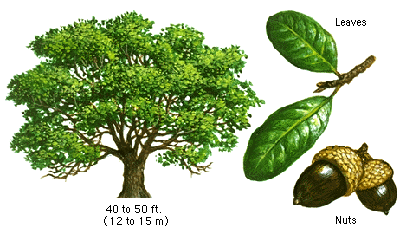[The fairies] often also came into men’s houses (into some particular houses more than others), especially in tempestuous bad weather. For, though I cannot think that the weather can essentially effect disembodied spirits (or that they can feel heat or cold, wind or rain), yet bad weather makes the place of their rendezvous less pleasant or more dismal and disagreeable. The poor, ignorant people (for fear of fairies) made them welcome by providing clean water in the house. They also took care that no knife was near the fire or other iron instruments (such as they knew were offensive to the fairies) were left in the corner near the fire. For want of which care, many people were hurt by them, and for cutting down the female oaks (some even unto death). Although now (and since the preaching of the Gospel, and men are come to have more faith in God), the female oak and all sorts of trees are cut down without any hurt. Some were afraid in those time of ignorance, superstition and want of faith in God to enter their gardens by night. There few that had faith to oppose those spirits of darkness. Nay some were so ignorant as to think the fairies (at least for some time, and before they had more knowledge and experience of them) to be some happy spirits because they had music and dancing among them. They are called by teh odd name of bendith y mamau (their mother’s blessing) in Monmouthshire. In other parts of Wales they are called y tylwyth yn y coed (the fair family or folks in the wood) becaus ethey were seldom or even never seen far from the wood, especially from the female oak (likely for the sake of the paganism of the ancient Britons, which they greatly practised especially under the female oak). For that reason, then, it was the still is called brenhinbren (giant oak-tree). Jones

Fairies and Female Oaks in Wales
[The fairies] often also came into men’s houses (into some particular houses more than others), especially in tempestuous bad weather. For, though I cannot think that the weather can essentially effect disembodied spirits (or that they can feel heat or cold, wind or rain), yet bad weather makes the place of their rendezvous less pleasant or more dismal and disagreeable. The poor, ignorant people (for fear of fairies) made them welcome by providing clean water in the house. They also took care that no knife was near the fire or other iron instruments (such as they knew were offensive to the fairies) were left in the corner near the fire. For want of which care, many people were hurt by them, and for cutting down the female oaks (some even unto death). Although now (and since the preaching of the Gospel, and men are come to have more faith in God), the female oak and all sorts of trees are cut down without any hurt. Some were afraid in those time of ignorance, superstition and want of faith in God to enter their gardens by night. There few that had faith to oppose those spirits of darkness. Nay some were so ignorant as to think the fairies (at least for some time, and before they had more knowledge and experience of them) to be some happy spirits because they had music and dancing among them. They are called by teh odd name of bendith y mamau (their mother’s blessing) in Monmouthshire. In other parts of Wales they are called y tylwyth yn y coed (the fair family or folks in the wood) becaus ethey were seldom or even never seen far from the wood, especially from the female oak (likely for the sake of the paganism of the ancient Britons, which they greatly practised especially under the female oak). For that reason, then, it was the still is called brenhinbren (giant oak-tree). Jones

